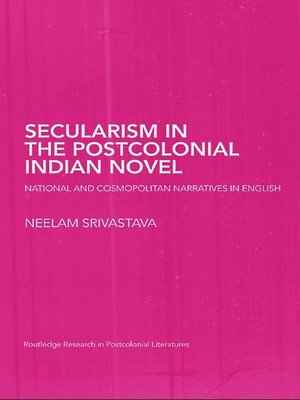Secularism in the Postcolonial Indian Novel
ebook ∣ National and Cosmopolitan Narratives in English · Routledge Research in Postcolonial Literatures
By Neelam Srivastava

Sign up to save your library
With an OverDrive account, you can save your favorite libraries for at-a-glance information about availability. Find out more about OverDrive accounts.
Find this title in Libby, the library reading app by OverDrive.



Search for a digital library with this title
Title found at these libraries:
| Library Name | Distance |
|---|---|
| Loading... |
This study explores the connections between a secular Indian nation and fiction in English by a number of postcolonial Indian writers of the 1980s and 90s. Examining writers such as Vikram Seth, Salman Rushdie, Amitav Ghosh, Shashi Tharoor, and Rohinton Mistry, with particularly close readings of Midnight's Children, A Suitable Boy, The Shadow Lines and The Satanic Verses, Neelam Srivastava investigates different aspects of postcolonial identity within the secular framework of the Anglophone novel. The book traces the breakdown of the Nehruvian secular consensus between 1975 and 2005 through these narratives of postcolonial India. In particular, it examines how these writers use the novel form to re-write colonial and nationalist versions of Indian history, and how they radically reinvent English as a secular language for narrating India. Ultimately, it delineates a common conceptual framework for secularism and cosmopolitanism, by arguing that Indian secularism can be seen as a located, indigenous form of a cosmopolitan identity.







